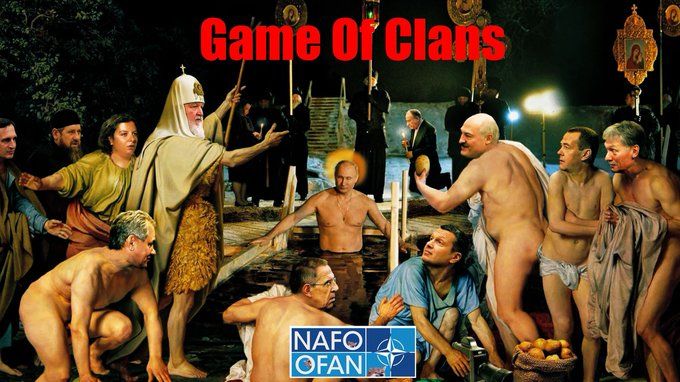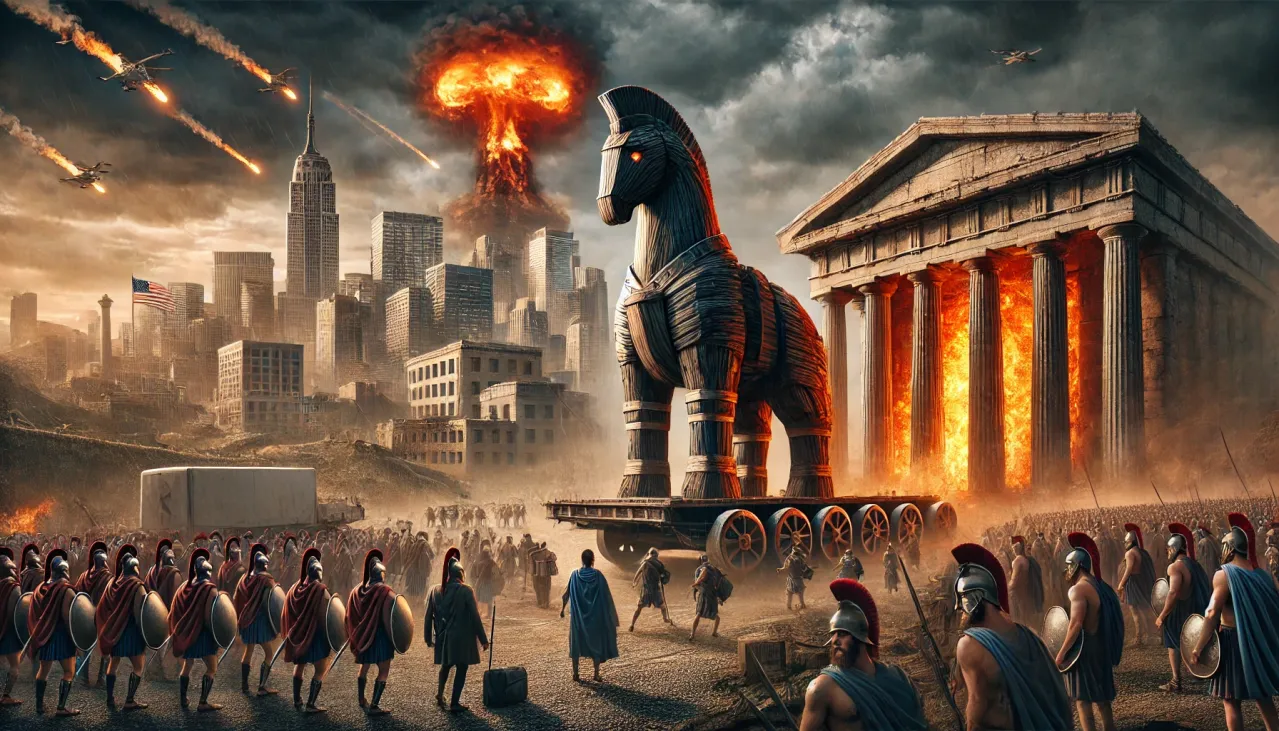Despite the fall of communism nearly three decades ago, Russian leaders have continued to pursue illiberalism and authoritarianism – especially Vladimir Putin, whose popularity remains high even as he plunders the country’s financial assets. Putin’s ability to strengthen and manipulate the power vertical and its accompanying clan system are crucial to his control of Russia as a whole.
Contemporary Russian politics, starting in 1990 when the country declared its sovereignty and de-facto independence from the Soviet Union, has experienced all types of regime shifts.
The newly post-Soviet Russia began as a fragile democracy, albeit one that leaned more towards illiberalism than freedom and continued to endure hard authoritarian governance. Over the years it travelled down the path of greater totalitarianism
Meduza ran a thread (below) on how these clans operate behind closed doors, how they influenced Putin’s government reshuffle, and what clan dynamics can tell us about Russia’s future. You may find this an interesting read.
Two weeks before Vladimir Putin’s May 7 inauguration, Deputy Defense Minister Timur Ivanov was arrested on suspicion of accepting more than $10 million worth of bribes in the form of construction services.
Reportedly known as the “king of kickbacks” behind the scenes, Ivanov wasn’t exactly discreet about his dealings; he flaunted his extravagant lifestyle online, which eventually landed him the starring role in a 2022 investigatory video by Alexey Navalny’s Anti-Corruption Foundation.
Corruption DNA in Russia
Corruption is part of Russian DNA and culture, so the question is why this and why now?
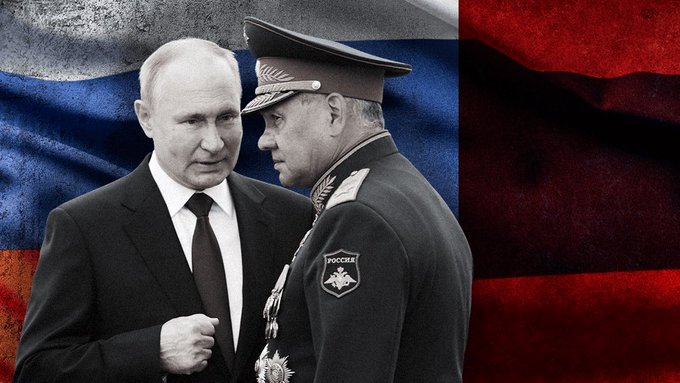
The pattern started unfolding two weeks later when Ivanov’s patron and boss, Sergey Shoigu, was removed from his position as defense minister as part of Putin’s post-inauguration personnel reshuffle. Overnight, Shoigu went from leading the ministry in charge of implementing Russia’s war of aggression in Ukraine to overseeing the Security Council — an advisory body that lacks any power to make political decisions.
In the days and weeks that followed Shoigu’s departure, four more Defense Ministry officials — Lieutenant General Yuri Kuznetsov, Major General Ivan Popov, Lieutenant General Vadim Shamarin, and procurement head Vladimir Verteletsky — met a fate similar to Ivanov’s and were arrested on corruption-related charges.
What is clear now is the Ministry of Defense is now going through a cull, and a lot of these people who were linked to Shoigu have been charged with corruption. In less than six weeks, six high-ranking Defense Ministry officials have fallen from grace. It might be argued that this is the result of an “inter-clan war” within Putin’s inner circle.
Putin has long been averse to change when it comes to the makeup of his inner circle and those at the top of his “power vertical.” Rather than refreshing his ranks with those who might prove more capable at effectively governing, he opts to keep his most-trusted allies in power — even if it means sending them to less-prestigious roles, as he did with Shoigu, and bloating his cabinet with newly crafted positions, like he did with Dyumin.
Such an arrangement, after all, has allowed him to preside over a thriving kleptocracy, insured by his ability to balance clan interests and their deeply entrenched patron-client networks. So, Putin’s decision to counterbalance the feuding clans through cabinet appointments shouldn’t come as much of a surprise since providing any one clan with too much power risks threatening his own.
However, Putin’s conservative modus operandi for personnel selection only serves to exacerbate any future succession conflicts that may arise when the curtain finally falls on him. His power vertical has grown ever more top-heavy since his recent appointments, and, although he might be dangling a few carrots in front of the Patrushev and Kovalchuk princes, Putin continues to obfuscate any indication of who he believes should become his successor.
Collapse of Russian society
The war has divided Russian society: parents, poisoned by propaganda, call their children traitors for refusing to support aggression against a neighboring country.
Russia’s most successful and educated residents — scientists, entrepreneurs and developers — are leaving en masse. Those who oppose the war, who can’t or don’t want to leave, are paralyzed by fear, suspicion and apathy. As if Dementors have drained them of their strength and deprived them of hope.
The destruction of the foundations of the state
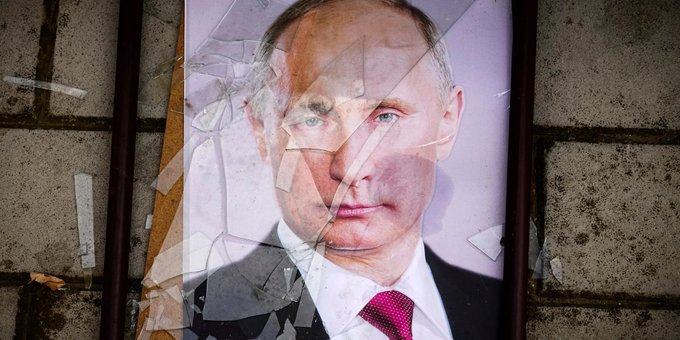 Putin turned 70 years old last year. We don’t know how true the many rumors about his serious illnesses are, but still few doubt that he will die relatively soon, based on life expectancy standards if nothing else.
Putin turned 70 years old last year. We don’t know how true the many rumors about his serious illnesses are, but still few doubt that he will die relatively soon, based on life expectancy standards if nothing else.
In states with functioning institutions, the departure of a leader — whether from politics or to the next world — is an event worthy of the front pages of newspapers, but it does not determine a country’s very survival.
Reality is quite different in countries with broken institutions, like Russia. In eliminating all possible competitors and canceling elections, Putin has deprived Russia of guarantees for a legitimate and peaceful transfer of power. He has hung the future of the country on a very unreliable hook: his own life.
It will be difficult for Putin and his fragmented inner circle to agree on a successor, whomever they end up selecting. The war in Ukraine — or rather the military defeats there — have aggravated internal conflicts between Russia’s ruling clans to an extreme. It’s now obvious: we await a fierce struggle for the throne of an aging dictator - and it will be a clan based struggle.
Clans of the Kremlin
Contrary to the pervasive myth that Russia is run by Putin alone, what truly drives the political and economic machinery in Russia today is competition between “clans,” or factions of government officials and/or business magnates.
Since the early 2000s, clans have consolidated around elites like former Defense Minister Sergey Shoigu, Rostec CEO Sergey Chemezov, former Security Council Secretary Nikolai Patrushev (now a presidential aide), and Putin’s purported “personal banker” and longtime friend Yuri Kovalchuk.
Each of these clan leaders has built up an extensive patron-client network of cronies whose government or corporate appointments and access to plundered state assets depend not on merit but on personal loyalty.
The rules of the game in this informal system are quite simple: clan leaders who gain access to Putin’s ear and stay in his good graces are rewarded with managerial control over institutions like state-owned enterprises, security agencies, and government ministries that manage the country’s most lucrative assets.
In turn, clan leaders distribute access to those assets amongst their own patron-client networks — for the guarantee of a kickback, of course — to bolster their own loyal power bases.
There is a view that Putin’s role in this corrupt bargain - is the arbitrator, balancing clan interests to ensure no single clan gains enough power to eventually jeopardize his own. Timur Ivanov’s arrest, however, threatened to throw this equilibrium into disarray.
St. Petersburg economists and lawyers
According to Associate Professor of Political Science John P. Willerton of the University of Arizona in the United States, reformist St. Petersburg economists and lawyers constitute a prominent group in the Putin team. Many of them have career and personal ties to Putin dating back to the early 1990s.
The Siloviki
Much foreign attention has been given to the security-intelligence elements, what Russians refer to as the siloviki. They began coming to power under Yeltsin, but this accelerated during Putin's premiership and presidency. A common view in Russia is that these siloviki are generally non-ideological, are corrupt, have a pragmatic law and order focus and have Russian national interests at heart.
They do not form a cohesive group. It is worth noting that Putin himself is a retired Lieutenant Colonel of the KGB.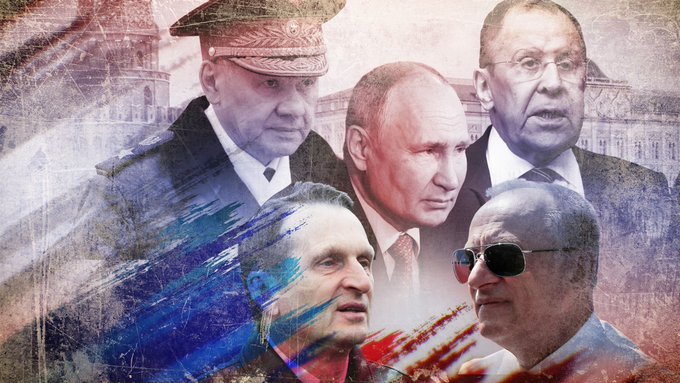
Many of the members of the economic reform team, both in the presidential administration and the government, are drawn from the St Petersburg group. They are academically qualified, have significant administrative experience, and are often focused on the technical complexities of the country's system transformation.
They are - in general - committed to market development, privatization and the continued diminution of the state's role in the country's socioeconomic life. The liberal economists contend that the consolidation of democracy comes with improving the population's standard of living and developing the private sector. Prominent St Petersburg economists include Alexei Kudrin, Herman Gref and Putin's economic adviser Andrey Illarionov.
Yeltsin Family, Ozero and Shoigu clans
Yeltsin family clan
Another identifiable group are the remnants of the so-called "Family" - a term which originally referred to relatives and associates of the former president Yeltsin. Most senior members of the group have left the highest corridors of power, but some have been able to survive and secure influential positions.
During the final years of Boris Yeltsin's presidency, Alexander Voloshin, chief of the Presidential Executive Office, was considered to be the most influential figure within the Family group. Despite his obvious connections to Russian commerce, he was dominating Russia's politics of that time.
The Family group has also almost entirely lost its influence by 2004 after the dismissals of Alexander Voloshin (October 2003), Prime Minister Mikhail Kasyanov (February 2004) and some key figures of his Cabinet, but some of the group's members secured their political survival. Vladislav Surkov, initially being an aide to Voloshin, gained much influence, as well as Prosecutor General Vladimir Ustinov, who had leaned towards new Saint Petersburg elites and whose son had become Igor Sechin's son-in-law. Tycoon Roman Abramovich, who had leaned towards the Family group in the 1990s, also remained influential, as well as former Mass Media Minister Mikhail Lesin. Each of them, however, had already distanced away from the Family group by that time.
Ozero
Ozero is the name of a co-operative society headed, inter alia, by Putin. The co-operative administers Putin's substantial personal wealth generated over the course of his presidency. The immense financial power of members of the co-operative fundamentally creates a wealthy clique of new oligarchs capable of replacing the financial power of Yeltsin era oligarchs.
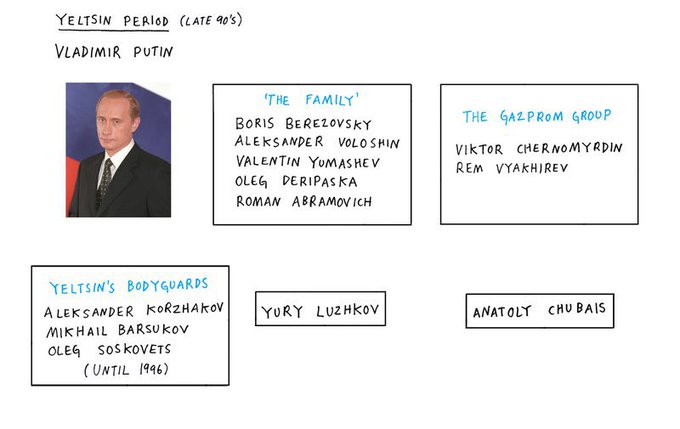
The Shoigu clan
Timur Ivanov wasn’t just a close protégé of Shoigu. According to experts like Hall, Ivanov was the Shoigu clan’s “wallet”: the figure responsible for keeping Shoigu’s riches safe and ensuring they’re “stuck away” in a tax haven somewhere.
“Generally, there had been an unwritten gentleman’s agreement that you didn’t go after “wallets” like Ivanov,” because they might decide to spill the beans about what their clan has been doing. It would also highlight quite how corrupt and kleptocratic the regime actually is.”
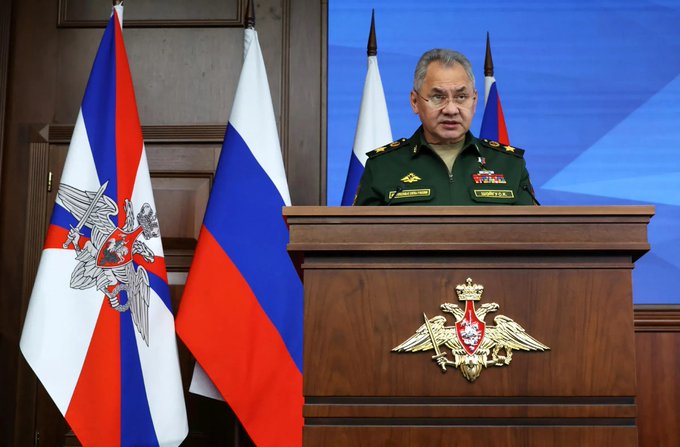
To be sure, the Defense Ministry’s deep-rooted corruption under Shoigu isn’t the only stain on the former defense minister’s record that likely factored into his reassignment. He is credited as being one of the staunchest advocates of launching Russia’s full-scale invasion of Ukraine in 2022, promising Putin a quick victory — something that clearly didn’t go according to plan.
As the war dragged on, Kremlin insiders and pro-war bloggers increasingly laid responsibility for the war’s hefty economic and human costs at Shoigu’s feet.
This criticism reached a boiling point in June 2023, when Wagner Group founder Yevgeny Prigozhin publicly accused Shoigu and the head of the Russian Army’s General Staff, Valery Gerasimov, of gross incompetence and intentionally deceiving Putin and the Russian public about the state of the war.
Although that standoff largely resolved itself after Prigozhin’s failed August 2023 mutiny and subsequent “mysterious” death, Shoigu’s rivals smelled blood in the water. Against this backdrop, Meduza’s Andrey Pertsev argues that Ivanov’s arrest can be seen as the first strike in a larger battle to topple Shoigu and attenuate his clan’s influence in the Kremlin.
The Chemezov clan
The list of figures who had plausible motives for undermining Shoigu’s clan isn’t exactly short — there are many elites who would have stood to benefit from his ouster from the Defense Ministry. Nonetheless, one clan of elites embedded in Russia’s military-industrial complex stands out both for its long-term efforts to remove Shoigu from power and its public interactions with him following Ivanov’s arrest.
The key figure in this clan is a former KGB officer who worked with Putin back in his Dresden days — Sergey Chemezov. Since the early 2000s, Chemezov has overseen Russia’s key exports in the military-industrial sector, first as the CEO of Russian state-owned arms seller Rosoboronexport, and then in his current position as the CEO of Russian state-owned defense conglomerate Rostec.
Over the years, Chemezov’s influence in Russia’s military-defense complex has helped neutralize the ambitions of Defense Ministry officials like Shoigu, who might seek to monopolize the ministry’s assets and use those spoils to accrue political power.
Another staunch Shoigu rival and prominent figure in Chemezov’s clan is Viktor Zolotov, the head of Russia’s National Guard (Rosgvardiya). Zolotov had long endeavored to extend his influence over the Defense Ministry by lobbying for members of his own clan to replace Shoigu as defense minister.
Evidence of this inter-clan rivalry previously surfaced in a leaked April 2023 phone call, in which a Russian billionaire and a former senator discussed how Chemezov, Zolotov, and Rosneft head Igor Sechin had “teamed up” to “tear Shoigu the fuck down.”
Sources close to Putin’s administration believe it was this inter-clan conflict that ultimately became the deciding factor in Shoigu’s May 12 dismissal. After months of complaining privately to Putin that the defense industry’s slow weapons deliveries were to blame for the Russian army’s measly territorial gains in Ukraine, Shoigu brought this conflict into the public eye — a big faux pas in Kremlin infighting etiquette.
During a Joint Group of Forces meeting on May 1, Shoigu ordered the defense industry to increase the quantity and quality of weapons production, intimating that the army’s success — or failure — depended on it.
Because Rostec is the army’s largest defense contractor, Chemezov was none too pleased with Shoigu’s apparent effort to deflect responsibility onto him. That same night, a Russian politics Telegram channel cited government insiders as saying that Shoigu, in reference to Ivanov’s arrest, had accused Rostec (and, by extension, Chemezov), Chemezov ally and then-Deputy Prime Minister Denis Manturov, and Russian Security Council Chairman Dmitry Medvedev of “creating additional difficulties and interfering with the [army’s] plans.”
But Shoigu’s dismissal wasn’t quite the victory that the Chemezov clan had in mind. Firstly, the Chemezov clan’s ultimate goal was to replace Shoigu with one of their own, not simply to remove him from the Defense Ministry. Instead, Putin replaced Shoigu with Andrey Belousov, a Putin loyalist who doesn’t belong to any clan, thus denying the Chemezov clan an opportunity to make inroads into the Defense Ministry.
Secondly, although the Chemezov clan’s efforts likely influenced Putin’s decision to remove Shoigu, they by no means forced Putin’s hand. Shoigu’s dismissal ultimately served a strategic purpose for Putin: many began to attribute the army’s failure to achieve a speedy victory in Ukraine to Shoigu’s Defense Ministry, not least because of its reputation as a breeding ground for corruption.
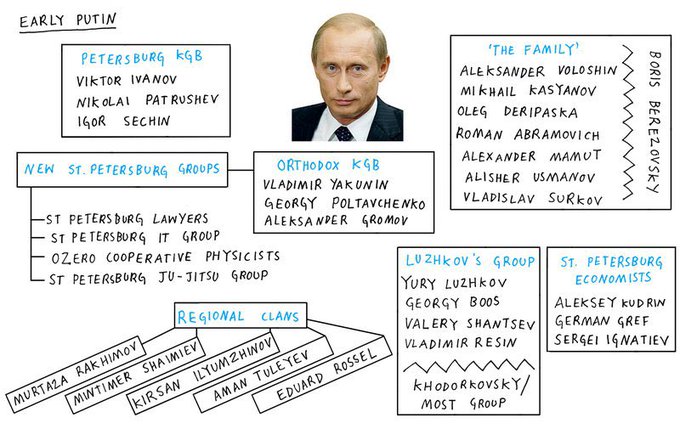
Putin’s appointment of a technocrat economist as defense minister only further amplifies this message. As Hall notes: “[Putin] can’t afford to lose this war. And Belousov is going to be the man who [can] potentially reform the Ministry of Defense — if it can be reformed — to sufficiently continue this war for a while.”
The Patrushev and Kadyrov clans
Another key switch-up that came from Putin’s post-inauguration appointments was Nikolai Patrushev’s transition from leading the Security Council — the position now occupied by Sergey Shoigu — to overseeing shipbuilding as one of Putin’s aides. Patrushev has amassed a significant power base of elites within Russia’s security services since climbing the ranks of the KGB in the 1970s.
However, because the makeup of Patrushev’s clan has ebbed and flowed over the years, which has resulted in more conditional alliances than long-lasting ones, many are left wondering if Patrushev’s new position might indicate that his clan’s influence is fading.
On paper, Patrushev’s new role is certainly a demotion, but he’s still going to be close to Putin. He’ll still see him relatively often, if not every day. So, I think for Patrushev […] maybe [it’s a demotion], but he still has access to the Tsar, and that, ultimately, is the important thing for him.” This might have been a more pragmatic play by Putin: because it’s a way to get access to new information, which is important for any autocracy in order to adapt.
But even if Putin’s intention was to limit Patrushev’s power, his clan moved up in the “power vertical” through another member’s appointment as Deputy Prime Minister of Agriculture: Dmitry Patrushev, Nikolai Patrushev’s son.
The Kadyrov Clan
The Kadyrovs are a political dynasty in Chechnya. The first generation, Akhmad Kadyrov, supported Moscow during the Chechen War and helped secure control of the region. The second generation Kadyrov, Ramzan, leads Chechnya now has benefitted from remaining loyal to the Moscow government, expanding his personal power greatly. During the war in Ukraine, he also sent troops to fight on the frontline and actively commented on course of the war.
However, rumors concerning Kadyrov’s health have been a consistent feature of late. Earlier on, the rumors claimed Kadyrov had suffered from kidney failure. More recently, reports suggest that Kadyrov was suffering from pancreatic necrosis in 2019, and his condition has worsened in the meantime. While Kadyrov released a clip of him exercising to divert public attention, speculation concerning his health is still rife.
Yet whether Kadyrov is healthy or not, one thing is sure: Chechnya will remain suppressed, even in a post-Ramzan Kadyrov situation. The stronger-than-expectation control of Moscow, Kadyrov’s dynastic strength, and the lack of sufficient opposition inside Chechnya will combine to sustain the status quo.
Kadyrov and his relatives have obtained great political trust in Moscow. Over the past 25 years, Kadyrov managed to build a dynastic rule in Chechnya, and one way or another this dynasty will play a key role in maintaining Chechnya’s stability after Ramzan Kadyrov.
Some reports indicated that more than half of the critical positions inside the Chechen government are held by relatives of Ramzan Kadyrov or members of his village. Besides politics and the military, the Kadyrov family also makes massive profits in Chechnya.
For example, in 2015 it was claimed that Kadyrov and his family imposed an unofficial tax upon Chechens. The French dairy company Danone also has plans to sell its Russia operations to a management team directly linked with the Kadyrov family.
Meanwhile, Kadyrov still shares the same interests as the Moscow government. Kadyrov’s family has gained massive economic and political privileges under the current system. It’s obvious that Kadyrovs are thriving under Moscow’s goodwill; thus, there is no practical reason for the family to challenge Moscow’s authority.
Ramzan Kadyrov is also preparing for the next generation to take over. Kadyrov’s elder son, Akhmad Kadyrov, has met with Putin. Although it was an unofficial meeting, the move seems a clear indication that Kadyrov intends to secure his son’s position in future Chechen politics. 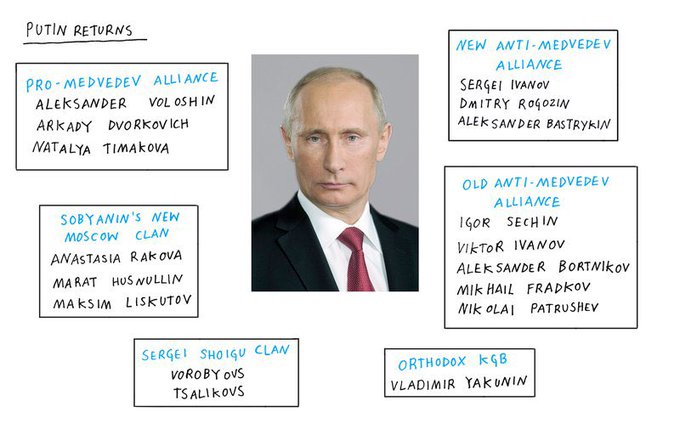
The rise of the Princes
Dmitry Patrushev is one of several “princes” — men with familial connections to Putin and his inner circle — to have received government postings since Putin’s fifth inauguration in early May.
Putin’s relative, Sergey Tsivilev, and Boris Kovalchuk —whose father, Yuri Kovalchuk, has been called the second-most powerful person in Russia and leads the banking and media asset-rich Kovalchuk clan — have also secured prominent appointments as the chairman of the Accounts Chamber and energy minister, respectively.
Putin’s decision to dole out key positions to the most powerful elites’ offspring not only harks back to Russia’s imperial era, as journalist Mikhail Zygar recently argued, but also hints at how Putin might be preparing for his eventual exit from power. Hall suggested that the appointments might be a kind of trial run for the young princes, adding that “the inner circle is, to an extent, perpetuating itself.” “It’s now passing its wealth and its control to its future generations.”
Against the backdrop of the inter-clan conflicts, the princes’ appointments also serve to hamper any sentiments of disloyalty or overreach within Putin’s inner circle. The Patrushev and Kovalchuk clans are particularly incentivized to play by the rules now that their princes’ stars are on the rise. As for Putin, he can sit back and resume his role as the main arbiter of clan interests while the princes and their respective clans compete to prove their loyalty as much as their competency.
The final tally
Sergey Shoigu’s departure from the Defense Ministry — along with the arrests of five high-up Defense Ministry officials — appears to be the most salient change in the recent Kremlin shake-up. Although Shoigu’s new position as Security Council secretary is still considered a coveted role within the government, it’s most certainly a demotion for the former Defense Minister. In his new role, Shoigu has a drastically smaller staff than before and lacks any enforcement authority. Most importantly for Shoigu’s clan, the Defense Ministry is no longer their cash cow: “Because he’s been moved to the Security Council, there’s less money to be made now, so that will be very hard for him in terms of how to keep his side happy.”
But despite his own clan’s recent misfortunes, analysts also consider Shoigu to be a key ally to Yuri Kovalchuk’s clan — a factor that could potentially soften the blow against the former defense minister. Many in the Kovalchuk clan fared well in the reshuffle, including Chairman of the Accounts Chamber “prince” Boris Kovalchuk, First Deputy Chief of Staff Sergey Kiriyenko, and Mikhail Mishustin, who held onto his position as prime minister.
As for the Chemezov clan, although its members succeeded in removing Shoigu from the Defense Ministry, their efforts to install one of their own in his place proved unsuccessful. Nonetheless, the Chemezov clan still has a high profile in the Kremlin: Rosgvardiya head Viktor Zolotov maintains close proximity to Putin, and two Chemezov allies, recently appointed First Deputy Prime Minister Denis Manturov and presidential aide Alexey Dyumin, were given prominent roles in the reshuffle.
Dyumin is also thought to be close to the Patrushev clan, so his recent promotion also plays well for Patrushev. What’s more, Patrushev’s “prince,” Dmitry Patrushev, has been elevated to a deputy prime minister position, and, while some interpret Patrushev’s new role as a clear demotion, he still has Putin’s ear.
Despite each clan endeavoring to tip the scales in its favor, Putin selectively rearranged his cabinet to ensure that no single clan achieved a relative victory over another.
Game of clans summary
Clans that had been eyeing the throne in anticipation of Putin’s expected 2024 departure were already forced to shift their timelines in 2021 when Putin rewrote the constitution, allowing him to remain in office until 2036. 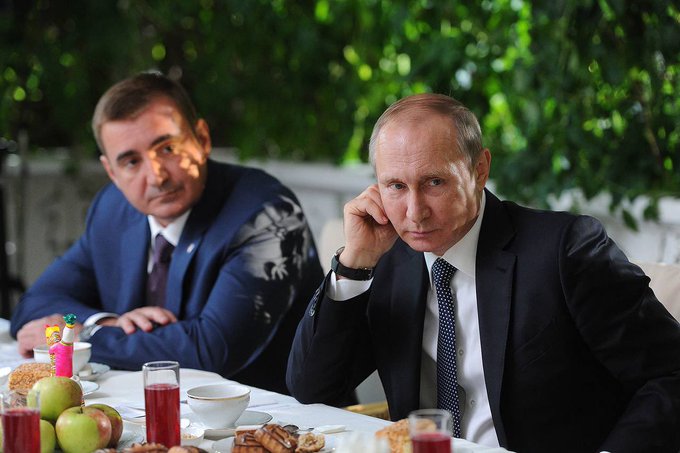
Putin’s continued insistence on balancing clan interests and playing his retirement cards close to the chest — especially as clans become ever more emboldened, breaking unspoken rules like going after another clan’s “wallet” — suggests that the inter-clan fighting within the Kremlin might just be a hint at what’s to come.
The path least bloody is guaranteed by the “Coalition of the Cronies”. Should it win, the victors would repress only the leaders and active members of the opposing clans. Russia’s future would be determined by the children of the leaders of this coalition.
Judging by what their acquaintances tell me, these young people would rather enjoy dance parties in Monaco and the ski slopes of Courchevel, than the prospect of becoming another North Korea, with an ongoing war at the border.
If the “Coalition of the Patriots” wins, Russia will become a military dictatorship. Victory requires a firm hand at the front, and a ruthless war against traitors in the rear. How long this dictatorship would last, no one can say. North Korea has been living this way for more than 70 years.
And if the “Coalition of the Bloodthirsty” emerges victorious, both the West and China will have to answer a very difficult question: are they ready to reckon with the fact that one of the largest nuclear arsenals in the world will be in the hands of a “holy trinity”: a strangler of women, who today heads an army of sadists with sledgehammers; an academic from Chechnya who tortures his victims and arranges extrajudicial killings; and a former presidential bodyguard.
However this Game of Thrones ends, it’s evident already that Putin does not play a major role. The worst that can happen to a dictator has befallen him: people view him with contempt, not fear.
References and sources:
- https://neweasterneurope.eu/2019/05/02/contemporary-russias-power-vertical-clans-controlled-by-the-kremlin/
- https://meduza.io/en/feature/2024/05/29/the-defense-ministry-is-going-through-a-cull
- https://web.archive.org/web/20070510014238/http://www.ft.com/cms/s/d776a916-ff2f-11da-84f3-0000779e2340.html
- https://web.archive.org/web/20030527225513/http://www.cdi.org/russia/johnson/7167-13.cfm
- https://theguardian.com/world/2005/nov/15/russia.nickpatonwalsh
- https://istories.media/en/opinions/2023/01/09/in-russia-a-clan-war-for-putins-throne-has-begun-who-will-win/
- https://geopoliticalmonitor.com/the-kadyrov-dy
Folks, I self-fund my equipment, research and subscription costs. I would appreciate your coffee support ! If you enjoy my threads, please help me keep the threads free, it takes just a few minutes to support my work on Patreon or BuymeACoffee - in any currency. Informative, evidence lead research for the price of a few coffees!
Thank You!
to those who have supported me on Patreon or buymeacoffee, you are simply awesome.
https://buymeacoffee.com/beefeaterfella
https://patreon.com/Beefeater_Fella


